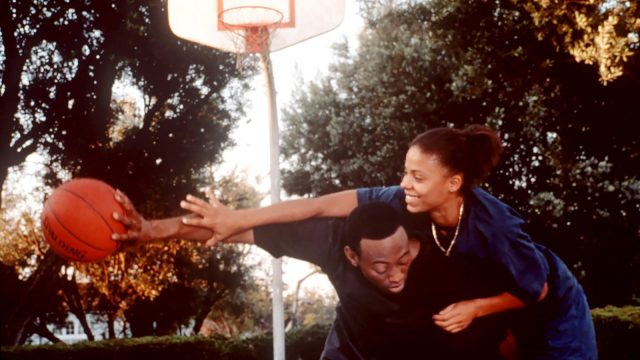Representation continues to trend in the entertainment world out there, though there’s still some news related to the pandemic. You all heard about this pandemic thing? Wild. This week we have a two articles on Black representation, a Disney princess missing out on the royal treatment, a pair of films with imminent mortality on their mind, and an interview with a director of movies for the young and the magically young.
Thanks to Miller for contributing this week, may the ball always be in his court. Send articles throughout the next week to ploughmanplods [at] gmail and/or post articles from the previous week below for discussion. Happy Friday!
For Vogue, Karen L. Smith-Janssen sits down with Love & Basketball and The Old Guard director Gina Prince-Bythewood:
Prince-Bythewood started working in TV right after she graduated from UCLA film school in 1991, writing for series like A Different World and South Central. These were supportive writers’ rooms full of Black creatives, but her next three jobs writing for TV dramas were very different experiences, and she often found she was the only Black person in the room. On one show, she had pitched a very personal story about a white family trying to adopt a Black child. “I poured so much of myself into it, and the network—not my producers, who loved the script —the network said, ‘We’re not going to do this because it’s too Black,’” she says. It was an epiphany. She resolved to write and direct her own stories and retain control.
Mary McNamara writes for the LA Times about why Mulan‘s announced release on Disney+ is another disservice to an already underappreciated character:
Yet even with its ground-breaking heroine, magnificent animation and hilarious supporting characters (including Eddie Murphy as Mulan’s dragon sidekick and Harvey Fierstein’s grouchy soldier Yao), it never quite recovered from the lack of initial hype to assume its rightful place in the Disney pantheon. It didn’t help that when Disney began leaning heavily on its princess brand, no one seemed to know what to do with Mulan; her merchandise was short on tulle and long on weaponry, her story more focused on action and overcoming prejudice than on magic and fairy tale romance.
At Vox, Alissa Wilkinson uses new releases She Dies Tomorrow and Strasbourg 1518 to consider mortality and mass psychosis during the pandemic:
We shine lights of distraction to keep the shadows of our own mortality at bay, but some events cast a broader pall. Amy Seimetz’s new movie She Dies Tomorrow imagines the premonition of death as not only something we occasionally experience but also a virus of its own, spreading from person to person, similar to an infection or a mania. But it’s the kind of mania that appears, under some lights, like sanity.
Brittany Spanos goes very, very long on how pop fandom, especially online, does and doesn’t accept Black fans:
For both Stephanie and Davonna, the K-pop response to the George Floyd protests has felt slow and minimal. Stephanie notes that while many corporate brands capitalized on showing sympathy with black customers within the first few days of the movement’s national call for justice, it took over a week to hear from many K-pop groups that had long broken in the U.S. She sees this as not only a disservice to the black fanbase, but a bad business strategy. “K-pop’s entire business model is ‘I want to make you feel good so you can give me your money,’” she says. “I was expecting a really blasé [statement], something inconsequential. But we didn’t even get that.”
And finally, Lauren Michele Jackson takes an incisive look at how a show about nothing dealt with its Black characters:
But Black people have never been nonexistent, or invisible, in the white sitcom. They have been invisible only in the way that Black people who service the margins of white world-making must be. In a genre whose conventions (and hilarity) thrive on white ridiculousness, Black people, relegated to the smallest of parts, exist to rein in the free play of whites, reminding viewers how safely deviant the main cast can be. No show exhibits this effect as quietly as the one that crested in lockstep with the ’90s culture wars, the quintessential sitcom and, in one woman’s opinion, the greatest — Seinfeld.

